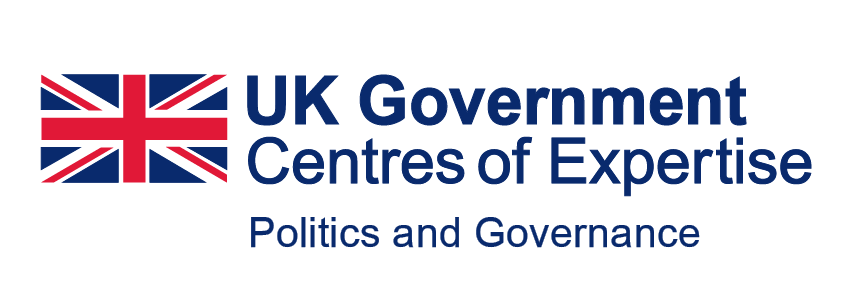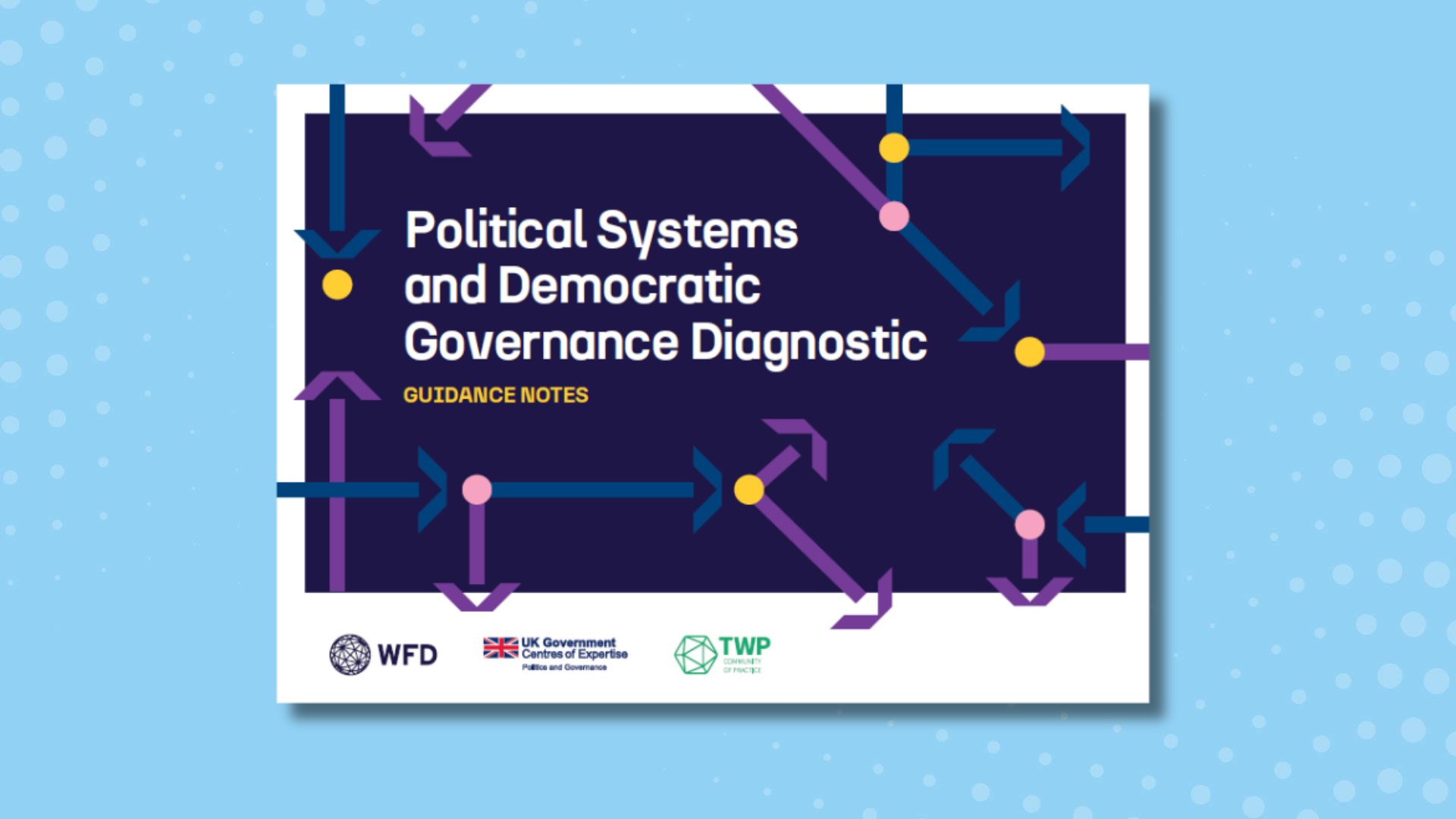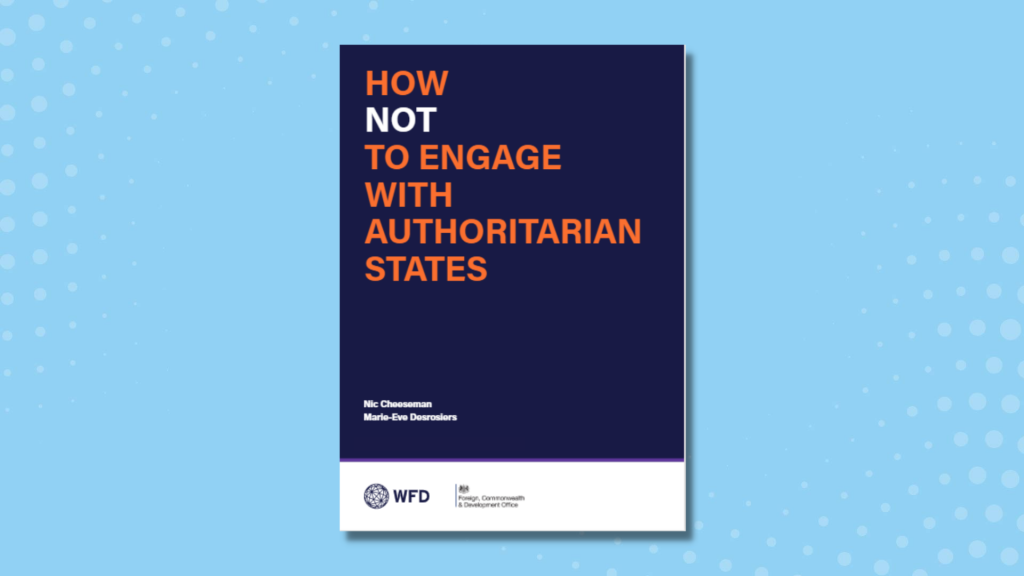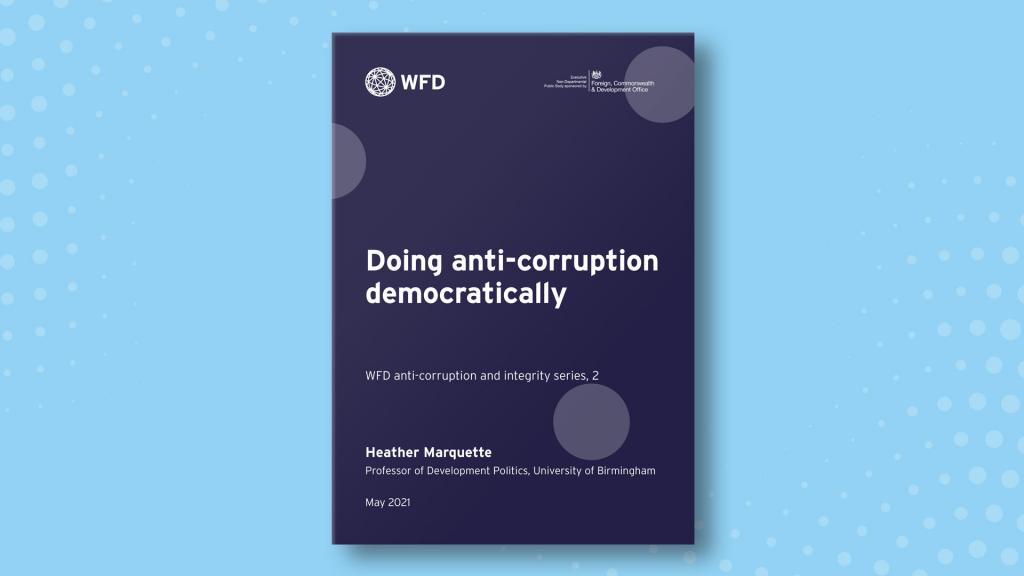Democratic governance in the world is in a precarious state.
The international community cannot be a bystander as autocratic regimes work together to challenge the international order, weaken agreed international norms, including on human rights, and actively undermine democratic governance.
International actors have a critical role to play in helping countries counter democratic erosion and strengthen democratic governance. This is not about imposing Western liberal democracy. It is about understanding and supporting locally led change which is appropriate to the context.
This diagnostic is designed to help international organisations work out how.
The tool does not aim to set out a list of (unrealistic) expectations of what an organisation or another country ‘must’ or ‘should’ do. Nothing is mandatory. It can be adapted to suit any organisation, in any region or context. It can be applied to authoritarian contexts, situations where democratic governance is eroding, countries in conflict, as well as ‘bright spots’ where there are opportunities for political renewal.
The process of using this guide matters as much as the outcome, both to bring people together to forge a common understanding of risks and opportunities, and to agree a plan for how your organisation will adapt what it is doing to support democratic governance more effectively.
The PSDG Diagnostic was developed by the Politics and Governance Centre of Expertise, in collaboration with the Thinking and Working Politically Community of Practice.
About the PSDG Diagnostic
The PSDG Diagnostic was specifically developed to help governments and international organisations adapt their approach to different contexts and work more effectively in supporting democratic governance.
The tool recognises that international actors continue to play a vital role in helping countries counter democratic erosion and strengthen governance, despite reduced capacity in some organisations. Success requires integrating long-term thinking into programming whilst remaining agile in deploying all available levers - political, diplomatic, and programmatic - to support governance objectives.
Building on established approaches like political economy analysis (PEA) and Thinking and Working Politically (TWP), the PSDG Diagnostic is rooted in action rather than analysis alone. It can help bring stakeholders together to develop shared understanding of their contexts, identify risks and opportunities within the political economy, and agree plans for adapting organisational approaches to support democratic governance more effectively.
The tool is entirely adaptable and can be applied across various situations including authoritarian contexts, areas experiencing democratic erosion, conflict situations, and promising environments for political renewal.
Who is the diagnostic for
Originally developed for UK diplomatic posts after extensive co-creation and piloting by WFD, the Thinking and Working Politically Community of Practice, FCDO and commissioned experts, the PSDG diagnostic has been adapted for broader audiences. The fundamental questions it explores to build understanding of political economy contexts and organisational positioning - including capacity, capability, credibility and trade-offs - are relevant to any organisation engaged in democracy and governance work.
This includes multilateral organisations, foreign departments, international organisations, and civil society groups. Understanding the full spectrum of available interventions and tools helps to ensure organisations can work more coherently and avoid inadvertently undermining each other or broader development goals. Crucially, this approach supports the "do no harm" principle in democratic governance work.
Working with the diagnostic
We welcome feedback from those who have used the diagnostic. Get in touch and let us know how you got on. To do so, or if you are interested in knowing more about how to use the diagnostic, email the Centre of Expertise on Politics and Governance.

About the Centre of Expertise on Politics and Governance
The Politics and Governance Centre of Expertise (CoE), is a joint initiative between the UK Foreign, Commonwealth & Development Office (FCDO) and Westminster Foundation for Democracy (WFD). The CoE provides information resources, technical support, and policy-relevant analysis to help FCDO posts understand their local political contexts and advance the UK’s strategic priorities.
WFD is the primary partner delivering CoE services alongside FCDO’s Development and Open Societies Directorate (DOSD).


